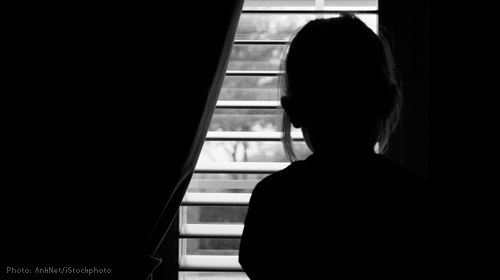
This week, the └¤░─├┼┐¬¢▒¢ß╣¹ won an important battle on the road toward protecting the rights of American Indian children and their parents and tribes. Chief Judge Jeffrey L. Viken of South Dakota's federal District Court ruled that a lawsuit filed by the └¤░─├┼┐¬¢▒¢ß╣¹ in March of 2013 can go forward, rejecting motions filed by the defendants that sought to have the case dismissed. The suit, brought on behalf of the Oglala and Rosebud Sioux Indian Tribes and a class of Indian parents, aims to ensure that state courts in South Dakota respect the rights granted to Indian parents by the Constitution's Due Process Clause and the Indian Child Welfare Act of 1978 (ICWA). The defendants include a state court judge, a county prosecutor, and the director of the South Dakota Department of Social Services.
Recognizing that nothing "is more vital to the continued existence and integrity of Indian tribes than their children," ICWA's express purpose is "to protect the best interests of Indian children and to promote the stability and security of Indian tribes and families." Why did Congress pass this statute? Because a congressional investigation in the mid-1970s revealed some truly shocking statistics: Between 25 and 35 percent of all Indian children nationwide had been removed from their families by various state welfare agencies and courts. In one state, the adoption rate for Indian children was eight times higher than that of non-Indian children. In another, Indian children were 13 times more likely than non-Indian children to be placed in foster care. These alarming numbers were the result of more than a century of failed policy, in which state officials could not or would not respect Indian communities' cultural and social standards.
One way that ICWA attempts to solve this problem is by requiring state welfare agencies and courts to provide parents and tribes with certain procedural protections in state child custody proceedings, including a meaningful opportunity to challenge the removal of Indian children from their homes. Our lawsuit argues that, in Pennington County, South Dakota, the initial hearings the state provides are perfunctory and virtually meaningless. They can be as brief as one minute long and they do not give parents or tribes a real chance to contest the removal of a child. Instead, Indian parents must wait an agonizing 60 to 90 days before they can learn why their children were removed to begin with and attempt to bring their children home.
The lawsuit hopes to change all this, and for several reasons Chief Judge Viken's ruling is a major step toward making that change. First, this ruling marks the first time that an Indian tribe has sought and been granted the ability to bring ICWA claims on behalf its members. This is immensely important for Indian tribes because, as the judge notes in his opinion, this lawsuit "is inextricably bound up with the Tribes' ability to maintain their integrity and 'promote the stability and security of the Indian tribes and families.'" Second, the judge agreed that, "[k]eeping Indian parents in the dark as to the allegations against them while removing a child from the home for 60 to 90 days certainly raises a due process issue." So, the court agrees that if Pennington County's child removal procedures really look the way our lawsuit describes them, those procedures violate the Due Process Clause and ICWA.
Congress passed ICWA to protect the due process rights of Indian parents and tribes against violations by the states. Our hope is that this lawsuit will safeguard ICWA's purpose in South Dakota and across the country.
Learn more about American Indian rights and other civil liberty issues: Sign up for breaking news alerts, , and .

